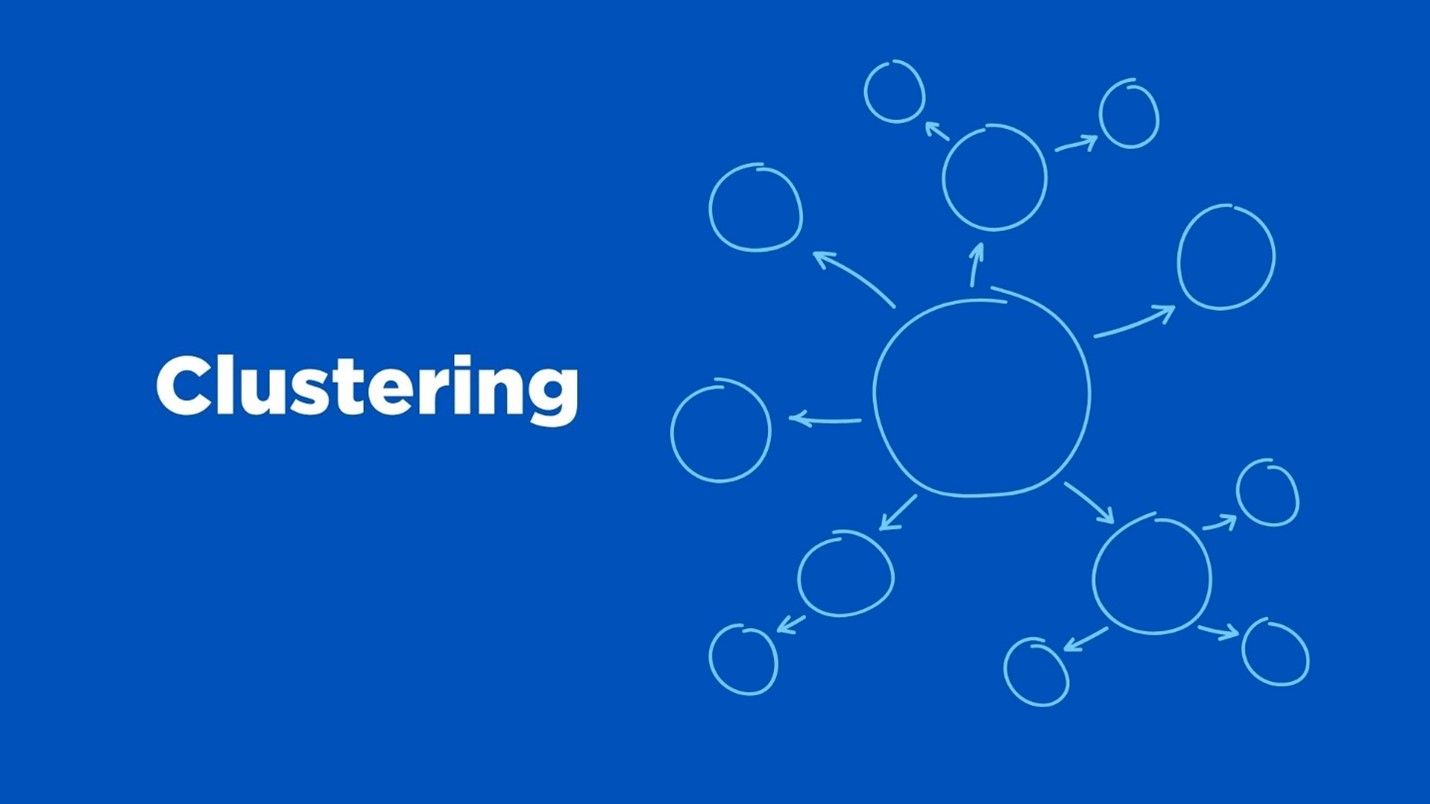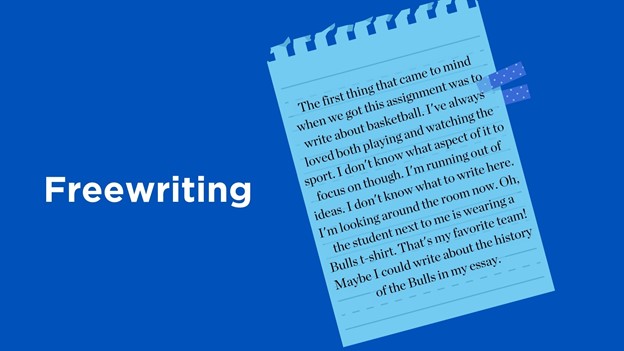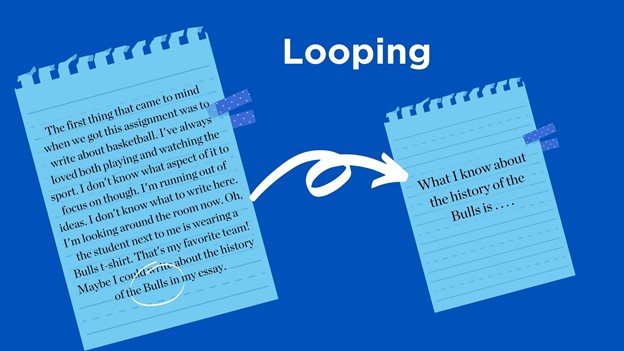
Pre-writing strategies use writing to generate and clarify ideas. While many writers have traditionally created outlines before beginning writing, there are several other effective prewriting activities. We often call these prewriting strategies “brainstorming techniques.” Five useful strategies are listing, clustering, freewriting, looping, and asking the six journalists' questions. These strategies help you with both your invention and organization of ideas, and they can aid you in developing topics for your writing.
Listing is a process of producing a lot of information within a short time by generating some broad ideas and then building on those associations for more detail with a bullet point list. Listing is particularly useful if your starting topic is very broad, and you need to narrow it down.

Clustering, also called mind mapping or idea mapping, is a strategy that allows you to explore the relationships between ideas.
The result will look like a web on your page. Locate clusters of interest to you, and use the terms you attached to the key ideas as departure points for your paper.
Clustering is especially useful in determining the relationship between ideas. You will be able to distinguish how the ideas fit together, especially where there is an abundance of ideas. Clustering your ideas lets you see them visually in a different way, so that you can more readily understand possible directions your paper may take.

Freewriting is a process of generating a lot of information by writing non-stop in full sentences for a predetermined amount of time. It allows you to focus on a specific topic but forces you to write so quickly that you are unable to edit any of your ideas.

Looping is a freewriting technique that allows you to focus your ideas continually while trying to discover a writing topic. After you freewrite for the first time, identify a key thought or idea in your writing, and begin to freewrite again, with that idea as your starting point. You will loop one 5-10 minute freewriting after another, so you have a sequence of freewritings, each more specific than the last. The same rules that apply to freewriting apply to looping: write quickly, do not edit, and do not stop.
Loop your freewriting as many times as necessary, circling another interesting topic, idea, phrase, or sentence each time. When you have finished four or five rounds of looping, you will begin to have specific information that indicates what you are thinking about a particular topic. You may even have the basis for a tentative thesis or an improved idea for an approach to your assignment when you have finished.

Journalists traditionally ask six questions when they are writing assignments that are broken down into five W's and one H: Who?, What?, Where?, When?, Why?, and How? You can use these questions to explore the topic you are writing about for an assignment. A key to using the journalists' questions is to make them flexible enough to account for the specific details of your topic. For instance, if your topic is the rise and fall of the Puget Sound tides and its effect on salmon spawning, you may have very little to say about Who if your focus does not account for human involvement. On the other hand, some topics may be heavy on the Who, especially if human involvement is a crucial part of the topic.
The journalists' questions are a powerful way to develop a great deal of information about a topic very quickly. Learning to ask the appropriate questions about a topic takes practice, however. At times during writing an assignment, you may wish to go back and ask the journalists' questions again to clarify important points that may be getting lost in your planning and drafting.
Possible generic questions you can ask using the six journalists' questions follow: